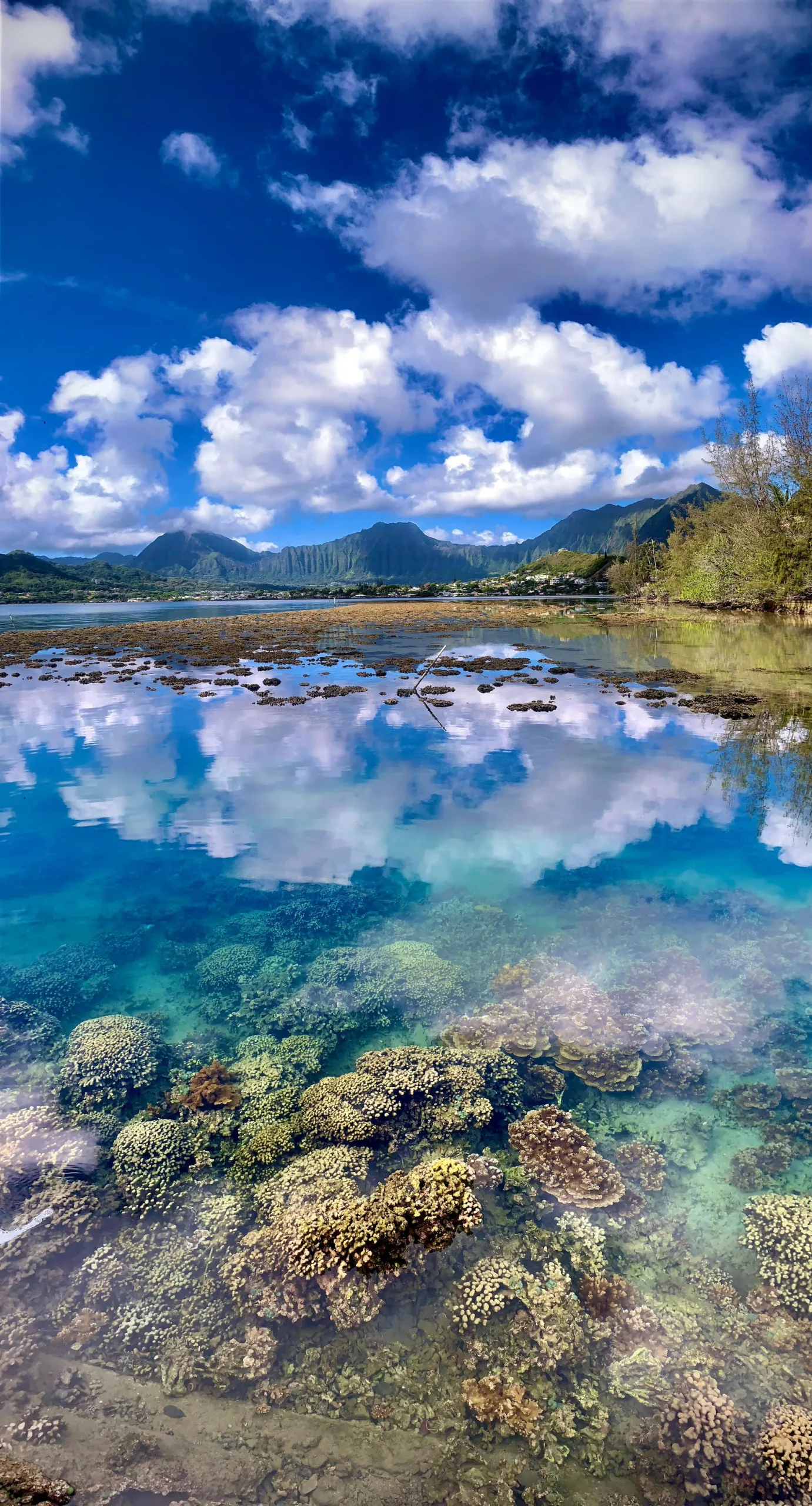Award amount: $1,999,835
Funding source(s): Department of Energy Office of Fossil Energy and Carbon Management
Why we care
One potential benefit of ocean alkalinity enhancement is reversing ocean acidification, which can impact marine life like corals, clams, and crabs. This project investigates the potential benefits and risks of ocean alkalinity enhancement on Pacific tropical and subtropical corals and crustose coralline algae. The project’s goal is to understand if ocean alkalinity enhancement can help counteract the effects of ocean acidification on coral reefs, which are important ecosystems for marine biodiversity and human communities.
What we will do
The main objectives of the research are to identify how corals and crustose coralline algae respond to immediate alkalinity additions and to determine the effects of chronic and acute exposure to ocean alkalinity enhancement. The study will explore whether biological limitations are primarily attributed to alkalinity or other factors like potential trace metal toxicity from the minerals used in ocean alkalinity enhancement. Laboratory experiments using different alkalinity enhancement agents (quicklime, sodium hydroxide, and olivine) conducted in chambers and mesocosms will establish safe operating conditions and understand the mechanisms of calcification in corals and crustose coralline algae under different ocean alkalinity enhancement scenarios. The team will support inclusivity and equity in the field of marine carbon dioxide removal by offering paid internships for underrepresented groups.
Benefits of our work
“Understanding the intricate balance between alkalinity additions and coral response will contribute to developing effective and informed strategies for mitigating the impacts of climate change and ocean acidification” says Dr. Melissa Meléndez of the University of Hawai’i. It is especially important to assess “potential benefits and limitations of ocean alkalinity enhancement, particularly in the context of safeguarding the health of corals.” The findings will provide valuable insights into the effects of ocean alkalinity enhancement on coastal ecosystems and guide the development of strategies that combine coral restoration and ocean alkalinity enhancement activities. The project team will provide training and educational opportunities for Pacific Islanders, community members, early-career researchers, underrepresented students, and stakeholders to learn about ocean alkalinity enhancement approaches and their potential impacts on coral reefs. Ultimately, the research contributes to the development of sustainable carbon dioxide removal methods and ocean acidification mitigation on coral reef ecosystems.
Investigators
Melissa Meléndez, University of Hawai’i, Manoa
Keisha Bahr, Texas A&M, Corpus Christi
Hannah Barkley, NOAA Pacific Islands Fisheries Science Center
Nick Hawco, University of Hawai’i, Manoa
Conall McNicholl, University of Hawai’i, Manoa
Lisa McManus, University of Hawai’i, Manoa
Christopher Sabine, University of Hawai’i, Manoa
Read the webstory from the University of Hawai’i, Manoa and webstory at Texas A&M, Corpus Christi
Image: Ocean alkalinity enhancement may mitigate the effects of climate change and ocean acidification on coral reefs like this one off the coast of Coconut Island in Kāneʻohe, Oahu. Photo by Keisha Bahr

